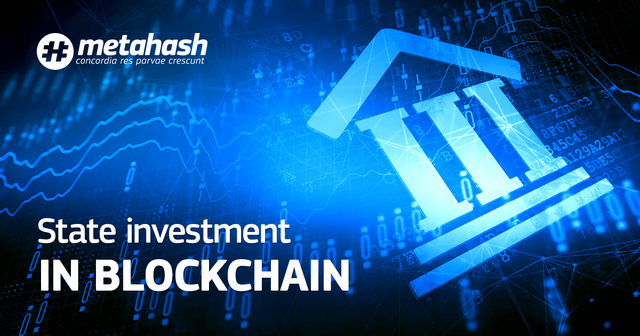
In the modern world end-to-end digital technologies are becoming a priority not only for the business sector, but also for national policies. Wireless technologies, VR/AR, quantum technologies, new-type production, IoT, robotics and sensors, neurotechnologies and artificial intelligence are considered the most promising directions. But for their proper functioning and development, Big Data tools, distributed registers and cryptographic protocols (in particular blockchain technology) are necessary.
Many largest economies in the world have already recognized the potential of such developments and have launched pilot projects involving distributed registries and managing data arrays, investing in technologies for processing and storing information.
For example, the Russian government has announced a bill on the federal budget for 2020–2022 period, which provides a budget allocation of almost 350 million rubles for the pilot distributed technologies for the next two years.
In South Korea, tests of blockchain systems are already actively applied for sale and registration of real estate, online voting, and customs clearance. Already in 2018, their Ministry of Education, Science and Technology announced large-scale plans concerning the development of various blockchain initiatives — investments of more than $200 million in state and private projects related to blockchain technologies.
The US government also will increase investments in blockchain sphere to $123.5 million by 2022, which is 1000% more than the $10.7 million spent in 2017. It helps to cover more complex areas such as asset management and identification, as well as smart contracts in the trading sector.
The main reasons that encourage states to invest more in distributed technologies are their security, stability and high speed. Without such characteristics, no system can enjoy the confidence of the population and contribute to the development of the economy. The technologies developed by the #MetaHash team are based on the stable functioning and self-improvement of the network — whether it is collecting and analyzing public opinion, smart contracting in the financial or trading fields, training or exchanging information — the transparency and reliability of the data collection based on them will not waver.
In general, analysts predict that by 2022, global spending on decisions related to the blockchain will exceed $11.7 billion. While a hybrid approach to blockchain, combining features of both closed and public networks, may seem the most popular among government agencies, the future will undoubtedly be with distributed technologies.
— — — — — — — — — — — — — — — — — — — — — — — — — —
Our website: https://metahash.org
Telegram: https://t.me/metahash_ENG
Twitter: https://twitter.com/themetahash
Warning! This user is on our black list, likely as a known plagiarist, spammer or ID thief. Please be cautious with this post!
If you believe this is an error, please chat with us in the #appeals channel in our discord.
Downvoting a post can decrease pending rewards and make it less visible. Common reasons:
Submit